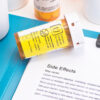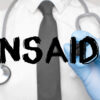Bob, a 30-year-old real estate agent, had been suffering from insomnia and depression for 6 months before he came to see me. His problem, he told me, was falling asleep. Once he finally got to sleep, he was down for the count, but before that, he would stare at the ceiling for hours, thinking about the day that had passed and worrying about the one to come.
In response to my questions, he also described other health problems, including poor digestion, fatigue and a short fuse. I asked him what other treatments he’d tried and he listed a few over-the-counter supplements and confided that he had started to see a psychotherapist. In fact, it was the therapy that had prompted Bob to find an acupuncturist. His new therapist had told him that he might be depressed, and suggested he try a medication for his condition. But Bob was keen to explore an alternative before taking that step.
He bristled at the idea that he had a “condition,” which felt like a reduction of his entire life to a simple diagnosis. It also sounded very permanent to him, as did a future of being medicated.
We talked and he was surprised to hear that I wasn’t completely opposed to the idea of antidepressants, but only when there is close monitoring and an endgame in mind. Together we explored the conditions that may — or may not — make medication a good idea.
Significant Side Effects Seen With Antidepressant Medications
In 2015, about 16 million American adults experienced at least one depressive episode in the prior year. The number taking medication for it grows each year. The reasons for this increase vary. They range from shifting attitudes about mental health and recognition of depression to expedient overprescribing in an increasingly burdened healthcare system.
Whatever the cause may be, this increase in the use of psychopharmaceutical medications is not a sustainable trend. While medications such as SSRIs (selective serotonin reuptake inhibitors) and TCAs (tricyclic antidepressants) may offer critical relief for some patients, their prevalence also speaks to a larger failure of mental health management. What’s more, there are significant side effects from these drugs that can paradoxically contribute to the very conditions for which patients are seeking help. These include:
- Low libido and other sexual side effects
- Increased appetite and weight gain
- Nausea
- Insomnia
- Fatigue
Since depression is often accompanied by anxiety, patients often take a cocktail of medication that can compound these side effects.
At the YinOva Center, we encourage our patients to embrace the best that conventional medicine and traditional Chinese medicine (TCM) have to offer. In the case of depression, TCM has a valuable contribution to make. The therapeutic process of TCM allows us to create a customized treatment for each patient, using a combination of acupuncture, herbs and other adjunctive therapies.
When used in combination with talk therapy, behavioral counseling and other individualized therapies, acupuncture focuses on the patient more than the disease.
Psychotherapy, which offers individualized exploration and counsel, can also play an important role in treatment. Pharmacological intervention, on the other hand, is often less personalized and, from the patient’s point of view, sometimes feels more abstract. This is because medication is often seen as a one-size-fits-all treatment. And with antidepressants, patient response can vary greatly.
There are two questions that I am commonly asked about acupuncture: How long does it take for the treatments to work and how long does it last? These are of particular concern for patients who are struggling with depression, because it has such broad effects on their lives. To approach these questions we consider a few factors, including how long the depression has been an issue, what precipitated it, circumstances that trigger or worsen it, and tools that the patient may already have, including everything from novel coping strategies to medications.
We then come up with realistic goals and clearly defined strategies for reaching them. Commonly, I recommend weekly treatments for 5 weeks as a starting point, with tangible benchmarks. With that we should see some shift and we can make decisions about how to progress.
If, on the other hand, we are not seeing the changes we want, we reevaluate our strategy and also consider other treatments and therapies that may be of help. This can also happen at the same time that a patient is beginning pharmaceutical treatments, which can take weeks or months to show improvements. They are not mutually exclusive, and acupuncture can also help to reduce the dosage of medications needed.
Studies Back Acupuncture for Depression
Medical studies have confirmed the benefit of acupuncture as a treatment option for depression. For example, a 2013 study published in PLOS that enrolled more than 750 people with severe depression found that those who received acupuncture saw their level of depression decline slightly more than those who received just counseling, and much more than patients who received usual care, such as medication. And the benefits of acupuncture lasted as long as 12 months after treatment ended for some patients.
(Incidentally, there is also evidence that acupuncture is effective for other types of mental illnesses, especially addiction.)
The most common thread I see among patients struggling with depression is a sense of disconnection in their lives, which is not helped by their medication. Antidepressants are a tool that can help a patient’s ability to embrace all aspects of their life, but antidepressants also miss the nuance of personal experience. In Chinese medicine, the integration of mental health with physical health and consciousness is fundamental. Not only is this connection essential to making meaningful change, missing it prevents us from fully understanding the individual parts.
The use of TCM that includes acupuncture provides a safe and effective complement in the integrative treatment of depression. When used in combination with talk therapy, behavioral counseling and other individualized therapies, it focuses on the patient more than the disease. In the care of depression, this can make all the difference.






